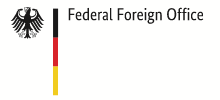Video | Climate and conflict
Related content

Resetting the agenda: How ESG is shaping our future
The Covid-19 pandemic has exposed a wealth of interconnections – between ecological and human wellbeing, between economic and environmental fragility, between social inequality and health outcomes, and more. The consequences of these connections are now filtering through, reshaping our society and economy.
In this setting, the need to integrate environmental, social and governance (ESG) factors when investing has become even more critical. Institutional investors must employ ESG not just to mitigate risks and identify opportunities, but to engage with companies to bring about the positive change needed to drive a sustainable economic recovery in the post-Covid world.
In order to understand how ESG could be both a new performance marker and a growth driver in this environment, as well as how institutional investors are using ESG to make investment decisions and to assess their own performance, The Economist Intelligence Unit (EIU), sponsored by UBS, surveyed 450 institutional investors working in asset and wealth management firms, corporate pension funds, endowment funds, family offices, government agencies, hedge funds, insurance companies, pension funds, sovereign wealth funds and reinsurers in North America, Europe and Asia-Pacific.
Download the report and infographic to learn more.

Charting the course for ocean sustainability in the Indian Ocean Rim
Charting the course for ocean sustainability in the Indian Ocean Rim is an Economist Intelligence Unit report, sponsored by Environment Agency Abu Dhabi and the Department of Economic Development Abu Dhabi, which highlights key ocean challenges facing the Indian Ocean Rim countries and showcases initiatives undertaken by governments and the private sector in the region to address these challenges.
Click here to view the report.

Fixing Asia's food system
The urgency for change in Asia's food system comes largely from the fact that Asian populations are growing, urbanising and changing food tastes too quickly for many of the regions’ food systems to cope with. Asian cities are dense and are expected to expand by 578m people by 2030. China, Indonesia and India will account for three quarters of these new urban dwellers.
To study what are the biggest challenges for change, The Economist Intelligence Unit (EIU) surveyed 400 business leaders in Asia’s food industry. According to the respondents, 90% are concerned about their local food system’s ability to meet food security needs, but only 32% feel their organisations have the ability to determine the success of their food systems. Within this gap is a shifting balance of responsibility between the public and private sectors, a tension that needs to and can be strategically addressed.
Related content

Video | Climate and conflict

Charts | Climate and conflict
Climate change and conflict are among the leading causes of global hunger. Climate change affects food security as changing temperatures, rainfall variability, and more frequent and intense extreme weather events are straining water supplies and reducing crop yields, and causing food prices to rise and be more volatile. In 2019, up to 25.9% of the world’s population faced moderate or severe levels of food insecurity, up from 22.4% in 2014. This number is projected to increase further, particularly in Africa and Latin America and the Caribbean (FAO, 2020). The effects of climate change and conflict on food and water availability and crop yields are linked to increases in migration and displacement, as communities migrate as an “adaptation strategy”, often from rural to urban areas (IEP, 2020). Growing urban centres exacerbate the potential for conflict in fragile conditions. Sharp increases in the number of people puts pressure on public goods and services, especially in secondary cities that lack the investment and infrastructure needed to sustainably cope with a growing population (EIU Safe Cities Index, 2019). Cities are also vulnerable to climate change, with a projected 800m urban inhabitants at risk from the impacts of rising seas and storm surges by 2050 (IPCC, 2019). Effective climate adaptation and building resilience in climate-vulnerable settings are therefore essential to conflict prevention and facilitating long-term peace and prosperity.

Resetting the agenda: How ESG is shaping our future
The Covid-19 pandemic has exposed a wealth of interconnections – between ecological and human wellbeing, between economic and environmental fragility, between social inequality and health outcomes, and more. The consequences of these connections are now filtering through, reshaping our society and economy.
In this setting, the need to integrate environmental, social and governance (ESG) factors when investing has become even more critical. Institutional investors must employ ESG not just to mitigate risks and identify opportunities, but to engage with companies to bring about the positive change needed to drive a sustainable economic recovery in the post-Covid world.
In order to understand how ESG could be both a new performance marker and a growth driver in this environment, as well as how institutional investors are using ESG to make investment decisions and to assess their own performance, The Economist Intelligence Unit (EIU), sponsored by UBS, surveyed 450 institutional investors working in asset and wealth management firms, corporate pension funds, endowment funds, family offices, government agencies, hedge funds, insurance companies, pension funds, sovereign wealth funds and reinsurers in North America, Europe and Asia-Pacific.
Download the report and infographic to learn more.
China's food future
This report is built on a research programme undertaken by The Economist Intelligence Unit (The EIU) between August and October 2020, and commissioned by Metcold. The views and opinions expressed in this publication are those of The EIU and do not necessarily reflect the views of Metcold. The report contains key insights on food supply chain modernisation in China and presents international best practices.
Key findings:
Related content

Resetting the agenda: How ESG is shaping our future
The Covid-19 pandemic has exposed a wealth of interconnections – between ecological and human wellbeing, between economic and environmental fragility, between social inequality and health outcomes, and more. The consequences of these connections are now filtering through, reshaping our society and economy.
In this setting, the need to integrate environmental, social and governance (ESG) factors when investing has become even more critical. Institutional investors must employ ESG not just to mitigate risks and identify opportunities, but to engage with companies to bring about the positive change needed to drive a sustainable economic recovery in the post-Covid world.
In order to understand how ESG could be both a new performance marker and a growth driver in this environment, as well as how institutional investors are using ESG to make investment decisions and to assess their own performance, The Economist Intelligence Unit (EIU), sponsored by UBS, surveyed 450 institutional investors working in asset and wealth management firms, corporate pension funds, endowment funds, family offices, government agencies, hedge funds, insurance companies, pension funds, sovereign wealth funds and reinsurers in North America, Europe and Asia-Pacific.
Download the report and infographic to learn more.

Charting the course for ocean sustainability in the Indian Ocean Rim
Charting the course for ocean sustainability in the Indian Ocean Rim is an Economist Intelligence Unit report, sponsored by Environment Agency Abu Dhabi and the Department of Economic Development Abu Dhabi, which highlights key ocean challenges facing the Indian Ocean Rim countries and showcases initiatives undertaken by governments and the private sector in the region to address these challenges.
Click here to view the report.

Fixing Asia's food system
The urgency for change in Asia's food system comes largely from the fact that Asian populations are growing, urbanising and changing food tastes too quickly for many of the regions’ food systems to cope with. Asian cities are dense and are expected to expand by 578m people by 2030. China, Indonesia and India will account for three quarters of these new urban dwellers.
To study what are the biggest challenges for change, The Economist Intelligence Unit (EIU) surveyed 400 business leaders in Asia’s food industry. According to the respondents, 90% are concerned about their local food system’s ability to meet food security needs, but only 32% feel their organisations have the ability to determine the success of their food systems. Within this gap is a shifting balance of responsibility between the public and private sectors, a tension that needs to and can be strategically addressed.
Cooling: Transporting us to net zero
In 2018, the Intergovernmental Panel on Climate Change (IPCC) announced that to limit global warming to 1.5°C, global net human-caused emissions of carbon dioxide (CO2) would need to fall by about 45% from 2010 levels by 2030 and reach “net zero” by around 2050. In practice, meeting this target requires all sectors to shift away from oil, gas and coal while also removing CO2 from the atmosphere.
Related content

Resetting the agenda: How ESG is shaping our future
The Covid-19 pandemic has exposed a wealth of interconnections – between ecological and human wellbeing, between economic and environmental fragility, between social inequality and health outcomes, and more. The consequences of these connections are now filtering through, reshaping our society and economy.
In this setting, the need to integrate environmental, social and governance (ESG) factors when investing has become even more critical. Institutional investors must employ ESG not just to mitigate risks and identify opportunities, but to engage with companies to bring about the positive change needed to drive a sustainable economic recovery in the post-Covid world.
In order to understand how ESG could be both a new performance marker and a growth driver in this environment, as well as how institutional investors are using ESG to make investment decisions and to assess their own performance, The Economist Intelligence Unit (EIU), sponsored by UBS, surveyed 450 institutional investors working in asset and wealth management firms, corporate pension funds, endowment funds, family offices, government agencies, hedge funds, insurance companies, pension funds, sovereign wealth funds and reinsurers in North America, Europe and Asia-Pacific.
Download the report and infographic to learn more.

Charting the course for ocean sustainability in the Indian Ocean Rim
Charting the course for ocean sustainability in the Indian Ocean Rim is an Economist Intelligence Unit report, sponsored by Environment Agency Abu Dhabi and the Department of Economic Development Abu Dhabi, which highlights key ocean challenges facing the Indian Ocean Rim countries and showcases initiatives undertaken by governments and the private sector in the region to address these challenges.
Click here to view the report.

Fixing Asia's food system
The urgency for change in Asia's food system comes largely from the fact that Asian populations are growing, urbanising and changing food tastes too quickly for many of the regions’ food systems to cope with. Asian cities are dense and are expected to expand by 578m people by 2030. China, Indonesia and India will account for three quarters of these new urban dwellers.
To study what are the biggest challenges for change, The Economist Intelligence Unit (EIU) surveyed 400 business leaders in Asia’s food industry. According to the respondents, 90% are concerned about their local food system’s ability to meet food security needs, but only 32% feel their organisations have the ability to determine the success of their food systems. Within this gap is a shifting balance of responsibility between the public and private sectors, a tension that needs to and can be strategically addressed.
TOWARDS ZERO: Rethinking recycling in Saudi Arabia and the UAE
Towards zero: Rethinking recycling in Saudi Arabia and the UAE, a report written by The Economist Intelligence Unit, examines the state of waste management in Saudi Arabia and the UAE and identifies priorities for accelerating recycling. There are several recycling projects underway in the region, but more focused efforts on priority streams—food waste, construction and demolition waste and e-waste—can improve landfill diversion rates.
Related content

Resetting the agenda: How ESG is shaping our future
The Covid-19 pandemic has exposed a wealth of interconnections – between ecological and human wellbeing, between economic and environmental fragility, between social inequality and health outcomes, and more. The consequences of these connections are now filtering through, reshaping our society and economy.
In this setting, the need to integrate environmental, social and governance (ESG) factors when investing has become even more critical. Institutional investors must employ ESG not just to mitigate risks and identify opportunities, but to engage with companies to bring about the positive change needed to drive a sustainable economic recovery in the post-Covid world.
In order to understand how ESG could be both a new performance marker and a growth driver in this environment, as well as how institutional investors are using ESG to make investment decisions and to assess their own performance, The Economist Intelligence Unit (EIU), sponsored by UBS, surveyed 450 institutional investors working in asset and wealth management firms, corporate pension funds, endowment funds, family offices, government agencies, hedge funds, insurance companies, pension funds, sovereign wealth funds and reinsurers in North America, Europe and Asia-Pacific.
Download the report and infographic to learn more.

Charting the course for ocean sustainability in the Indian Ocean Rim
Charting the course for ocean sustainability in the Indian Ocean Rim is an Economist Intelligence Unit report, sponsored by Environment Agency Abu Dhabi and the Department of Economic Development Abu Dhabi, which highlights key ocean challenges facing the Indian Ocean Rim countries and showcases initiatives undertaken by governments and the private sector in the region to address these challenges.
Click here to view the report.

Fixing Asia's food system
The urgency for change in Asia's food system comes largely from the fact that Asian populations are growing, urbanising and changing food tastes too quickly for many of the regions’ food systems to cope with. Asian cities are dense and are expected to expand by 578m people by 2030. China, Indonesia and India will account for three quarters of these new urban dwellers.
To study what are the biggest challenges for change, The Economist Intelligence Unit (EIU) surveyed 400 business leaders in Asia’s food industry. According to the respondents, 90% are concerned about their local food system’s ability to meet food security needs, but only 32% feel their organisations have the ability to determine the success of their food systems. Within this gap is a shifting balance of responsibility between the public and private sectors, a tension that needs to and can be strategically addressed.
Sustainable finance | How will covid-19 reshape key Australian industries?
Awareness that sustainability means more than reducing carbon emissions is mounting in Asia-Pacific. Evidence to the fact shows in the response of the region’s sustainable finance market to the global pandemic.
In late 2019, the market was bullish. Asia’s sustainability-related assets under management looked set to grow appreciably, and most investors saw those holdings performing better than traditional equivalents.1
Then covid-19 struck.
17541
Related content

Technology | How will covid-19 reshape key Australian industries?
Cloud providers and large collaboration tool companies have seen significant growth, with Atlassian, Zoom, Microsoft Teams, Amazon and Google all thriving. The pandemic has also sparked some remarkable innovations from both large and small tech companies. Australian owned Calumino, for example, postponed a planned rollout of thermal imaging sensors for aged care facilities and instead created a small device that sits on a tripod and measures a person’s temperature in less than a second.
When lockdown measures are eased completely and the economy begins to improve, tech companies are also poised to gain from some profound shifts in consumer behaviour. Just as SARS led to exponential growth of online marketplace platforms in China, in Australia more shoppers are now accustomed to ordering groceries and other goods online.
In this interview, Scott Farquhar, co-founder and co-CEO of software company Atlassian, discusses how a crisis such as covid-19 inspires a generation of new ideas and why Australia needs to do more to create truly global technology businesses.
1 Todd Spangler, “Video Streaming to TVs Soared 85% in U.S. in First Three Weeks of March, Nielsen says”, Variety, March 31st 2020. https://variety.com/2020/digital/news/video-streaming-tvs-us-data-corona... 2 Letter to shareholders, Netflix, April 21st 2020.
Retail | How will covid-19 reshape key Australian industries?
Retail sales bounced back after restrictions were eased at the beginning of May—turnover rose 16.3% that month, another statistical record.2 However, with e-commerce emerging as a panacea to some of Australia’s covid-19 retail woes, many analysts predict that consumer behaviour may have changed permanently.3
Australia Post—which provides postal services in Australia—estimates e-commerce in the nation grew 80% year-on-year in the two months up to May 15th 20204 and for some retailers the biggest challenge at the height of the pandemic was meeting the extraordinary spike in online demand. Yet the impact on individual companies depended on the types of products they offer online and whether a brand’s e-commerce presence was well-established prior to the lockdown.
In this interview, Chris Kinraid—group chief financial officer (CFO) at Kathmandu Holdings Limited, which manages Kathmandu, Rip Curl and Oboz Footwear—describes the evolving issues his firm has faced over the course of the pandemic. From factory closures to difficult decisions about cost restructuring and the impossibility of future forecasting, Mr Kinraid is also quick to recognise the opportunities the crisis has created and why it may have a profound impact on the shape of Australia’s retail sector in the years ahead.
1 Series 8501.0 - Retail Trade, Australia, Australian Bureau of Statistics, April 2020. 2 Series 8501.0 - Retail Trade, Australia, Australian Bureau of Statistics, May 2020 3 How COVID-19 will permanently change consumer behavior, Accenture, April 2020. 4 Inside Australian Online Shopping: eCommerce market insights, Australia Post, 15th May 2020

Infrastructure | How will covid-19 reshape key Australian industries?
Critically, when the pandemic broke out, construction was declared an ‘essential service’ by the federal government. Work was permitted to continue, with social distancing measures applied. This came as a relief to many in the infrastructure and construction sectors, as site workers cannot work remotely, and many construction projects were being halted globally. New Zealand and Singapore, for example, took a stricter view of ‘non-essential’ projects, allowing only those that supported critical infrastructure or related to immediate health or life safety risks to continue.
The federal government elected not to issue a shut-down order in recognition of construction and infrastructure’s critical contribution to Australia’s economy. Construction is the nation’s third largest industry and accounted for 8% of Australia’s gross value added in 2018-19 for a value of A$32.9bn (US$23bn) in the first quarter of 2020.2 It also employs 9% of working age Australians.3
Of all the types of infrastructure, however, none has been more profoundly affected by covid-19 than airports. In this interview, Lyell Strambi, the chief executive officer of Melbourne Airport, explains how it has upended the most fundamental economic aspects of airport operations, as well as the broader impacts on Australia’s transport infrastructure. He also outlines why the inherent agility of the aviation sector makes it uniquely positioned to respond to even the most overwhelming of challenges.
1 Record infrastructure spend the new normal, 2019 Australian Infrastructure Audit warns, Infrastructure Australia, The Australian Government, 13th August 2019 2 Australian System of National Accounts 2018-2019, Australian Bureau of Statistics 3 Australian Government Labour Market Information PortalSustainable and actionable: An ESG study of climate and social challenge for Asia
Along with its wealth, Asia’s climate risks have been rising. Low-lying coastal cities are particularly vulnerable to climate change and regional population and economic centres—such as Bangkok, Ho Chi Minh City, Manila and Shanghai—sit upon that precipice. Yet in terms of green fixed income, Asia faces another risk: lack of issuance and uptake.
Related content

Data drives ESG investing—but too much data inspires greenwashing
Greenwashing—falsely attracting capital by claiming it will be used for sustainable projects—is the “fake news” of investing. The term has roots in the 1980s when it was aimed at big corporations that made symbolic “green” gestures but were nonetheless culpable for net contributions to pollution, or what we today call “climate change” (a greenwashed term itself that displaced “global warming”).
But with the growth of environmental, social and governance (ESG) investing, which now accounts for about 20% of global assets under management (AUM),1 the stakes are much higher.
“Greenwashing is a big issue,” says Remy Briand, global head of ESG products at MSCI. The finance firm is a major provider of investment indices and data, much of which is ESG focused. “The way to resolve this is through transparency on dedicated use of proceeds and robust third-party validation of that use.”
The mention of “transparency”, however, raises the question of how it’s to be achieved. The old answer might have been “more data”. But one problem the financial world faces is a lack of a global ESG taxonomy which means there is no data “gold standard”. Information can therefore be highly inconsistent, making comparison of companies and projects difficult. In turn, that deters investors and helps greenwashers. Many of Asia’s largest investors—the asset owners—such as the Asian Infrastructure Investment Bank, the Hong Kong Monetary Authority and Ping An Insurance, China’s biggest insurer, share this view (their perspectives are shared in The Economist Intelligence Unit report, Sustainable and actionable: An ESG study of climate and social challenge for Asia).
A question investors are starting to ask of ESG is “What’s so green about it?”
About 600 organisations claim to answer that question, Mr Briand comments. The multitude of data then can muddy the waters more than it clarifies. These entities are all trying to convince investors that they have built the best ratings mousetrap and go on to ask listed and private companies for widely diverging ESG data, exhausting both corporate patience and resources. Such an over-proliferation “can be an excuse to do nothing,” Mr Briand asserts.
With no overarching taxonomy to define “green” and an excess of providers and methodologies, the space between problems and solutions only gets wider. So the answer can’t be “more data”.
“The important point is that investors need to be explicit about the problem they are trying to solve,” says Mr Briand. For instance, a listed fishing company that operates unsustainably will see its supply collapse—and its business with it. Translating the scenario into conventional financial metrics such as default risk is called “materiality” and is seen by many investors as a more applicable approach.
Focusing on metrics can do more to influence ESG investment strategies and outcomes than the heavy data burden associated with proving ESG credentials. A shift in focus should help to address issues such as cost of capital which has hampered green bond uptake. It’s not that investors shun the green aspect, but when issuers have to jump through too many hoops to get a bond certified, they walk away. Bureaucracy comes at a cost and it’s a common complaint among issuers that they reap no reward for the extra effort of issuing a green-labelled bond. Again, the extra data leads to fewer green investment opportunities (but more greenwashing ones).
However, Mr Briand believes change may be on the way. He explains how MSCI has analysed issuers within its own green bond indices and found a difference between those with high green credentials and those with low. “Investors put a premium on those bonds issued by the former. So, regarding the question as to whether investors discriminate between the two, the answer is yes.” Higher demand, when seen as truly accomplishing a green goal, does translate into a lower cost of capital.
Having a grasp on materiality benefits investors because such company-level transparency can flag risks—from exposure to floods to regulatory action or labour disputes—that negatively impact value.
Data used in this way could overtake the need for green-labelled financial instruments and the related greenwashing potential. Greenwashing is akin to a cigarette manufacturer touting a one-off charitable donation to lung cancer research. It might look good in the data but we all know what the root cause is. Progress in leveraging capital against climate change depends on better linkage between green goals and quantifiable key performance indicators.
Investors need the ability to apply standardised data all the way through portfolios so that all AUM can be green, not just those with the right boxes ticked.
Special thanks to Remy Briand, global head of ESG products, MSCI for his insight and expertise on the topic.
For a deeper analysis on ESG, green credentials and greenwashing see Sustainable and actionable: An ESG study of climate and social challenge for Asia
1 US$17.5trn out of the US$79trn of total estimate from Boston Consulting Group and the US SIF Foundation, cited in the Financial Times, February 26th 2020. https://www.ft.com/content/e969217c-f001-11e9-a55a-30afa498db1b?segmentId=47561bcd-230d-6768-b4a1-deb6edc93a7b

Sustainable and actionable: A study of asset-owner priorities for ESG inves...
The world’s top 100 asset owners (AOs) represent about US$19trn in assets under management. The largest, and potentially most influential, proportion is in Asia—more than a third of the total. Out of the top 20 largest funds, three out of the first five and nearly half of the total are in Asia.
The Economist Intelligence Unit carried out interviews with some of Asia’s largest asset owner firms, development banks, sustainable investment organisations and influential industry advocates to determine how they saw the growth of environmental, social and governance (ESG) investing in Asia, as well as the AO role in it. In parallel, we review the latest research on ESG investing in the region to give an overview of sustainable investing in Asia. The main findings include:
There has been a significant change in the awareness, uptake and impact of ESG in Asia over the past three to five years. AOs are motivated by an increasing recognition that their investment decisions have material consequences for their environment and the lives of their beneficiaries. In terms of financial return, “governance” seems to be the most important ESG factor for most AOs, given its demonstrable link to optimising risk-adjusted returns. As in other regions, ESG investing began with a negative screening approach. While progress is accelerating, challenges remain.
The shifting landscape of global wealth: Future-proofing prosperity in a ti...
In some instances the impact of this shift will be shaped by local factors, such as demographic changes. In other instances this shift will reflect shared characteristics, as demonstrated by the greater popularity of overseas investing among younger high-net-worth individuals (HNWIs) brought up in an era of globalisation. Whatever the drivers, the landscape of wealth is changing—from local to global, and from one focused on returns to one founded on personal values.
Despite rising economic concerns and a tradition of investor home bias in large parts of the world, the new landscape of wealth appears less interested in borders. According to a survey commissioned by RBC Wealth Management and conducted by The Economist Intelligence Unit (EIU), younger HNWIs are substantially more enthusiastic about foreign investing. The U.S. is a particularly high-profile example of a country where a long-standing preference for investments in local markets appears set to be transformed.
Click the thumbnail below to download the global executive summary.
Read additional articles from The EIU with detail on the shifting landscape of global wealth in Asia, Canada, the U.S. and UK on RBC's website.
Amid devastation covid-19 provides glimpse of a future with cleaner air
Related content

Value-based healthcare in Sweden: Reaching the next level
The need to get better value from healthcare investment has never been more important as ageing populations and increasing numbers of people with multiple chronic conditions force governments to make limited financial resources go further.
These pressures, along with a greater focus on patient-centred care, have raised the profile of VBHC, especially in European healthcare systems. Sweden, with its highly comprehensive and egalitarian healthcare system, has been a leader in implementing VBHC from the beginning, a fact that was underscored in a 2016 global assessment of VBHC published by The Economist Intelligence Unit.
This paper looks at the ways in which Sweden has implemented VBHC, the areas in which it has faced obstacles and the lessons that it can teach other countries and health systems looking to improve the value of their own healthcare investments.

Breast cancer patients and survivors in the Asia-Pacific workforce
With more older women also working, how will the rising trend of breast cancer survivorship manifest in workplace policies, practices and culture? What challenges do breast cancer survivors face when trying to reintegrate into the workforce, or to continue working during treatment? How can governments, companies and society at large play a constructive role?
This series of reports looks at the situation for breast cancer survivors in Australia, New Zealand and South Korea. It finds that while progress has been made, more needs to be done, particularly in South Korea, where public stigma around cancer remains high.
The Cost of Silence
Cardiovascular diseases levy a substantial financial toll on individuals, their households and the public finances. These include the costs of hospital treatment, long-term disease management and recurring incidence of heart attacks and stroke. They also include the costs of functional impairment and knock-on costs as families may lose breadwinners or have to withdraw other family members from the workforce to care for a CVD patient. Governments also lose tax revenue due to early retirement and mortality, and can be forced to reallocate public finances from other budgets to maintain an accessible healthcare system in the face of rising costs.
As such, there is a need for more awareness of the ways in which people should actively work to reduce their CVD risk. There is also a need for more primary and secondary preventative support from health agencies, policymakers and nongovernmental groups.
To inform the decisions and strategies of these stakeholders, The Economist Intelligence Unit and EIU Healthcare, its healthcare subsidiary, have conducted a study of the prevalence and costs of the top four modifiable risk factors that contribute to CVDs across the Asian markets of China, Australia, Hong Kong, Japan, Singapore, South Korea, Taiwan and Thailand.
Download the report to learn more.
A new shade of green: Sukuk for sustainability
The first green bonds were issued a little over a decade ago by multilateral institutions and municipalities. Green bond issuance is now growing by about 50% annually according to Sean Kidney, CEO and co-founder of the Climate Bonds Initiative, an investor-focused NGO based in London. Last year, green bond issuance reached a record of US$258bn, much of it coming from the US, France and China. “For investors, green bonds are a great way to address concerns about climate change and to put money in assets that they think are going to be lower risk,” says Mr Kidney.
17376
Related content

Resetting the agenda: How ESG is shaping our future
The Covid-19 pandemic has exposed a wealth of interconnections – between ecological and human wellbeing, between economic and environmental fragility, between social inequality and health outcomes, and more. The consequences of these connections are now filtering through, reshaping our society and economy.
In this setting, the need to integrate environmental, social and governance (ESG) factors when investing has become even more critical. Institutional investors must employ ESG not just to mitigate risks and identify opportunities, but to engage with companies to bring about the positive change needed to drive a sustainable economic recovery in the post-Covid world.
In order to understand how ESG could be both a new performance marker and a growth driver in this environment, as well as how institutional investors are using ESG to make investment decisions and to assess their own performance, The Economist Intelligence Unit (EIU), sponsored by UBS, surveyed 450 institutional investors working in asset and wealth management firms, corporate pension funds, endowment funds, family offices, government agencies, hedge funds, insurance companies, pension funds, sovereign wealth funds and reinsurers in North America, Europe and Asia-Pacific.
Download the report and infographic to learn more.

Charting the course for ocean sustainability in the Indian Ocean Rim
Charting the course for ocean sustainability in the Indian Ocean Rim is an Economist Intelligence Unit report, sponsored by Environment Agency Abu Dhabi and the Department of Economic Development Abu Dhabi, which highlights key ocean challenges facing the Indian Ocean Rim countries and showcases initiatives undertaken by governments and the private sector in the region to address these challenges.
Click here to view the report.

Fixing Asia's food system
The urgency for change in Asia's food system comes largely from the fact that Asian populations are growing, urbanising and changing food tastes too quickly for many of the regions’ food systems to cope with. Asian cities are dense and are expected to expand by 578m people by 2030. China, Indonesia and India will account for three quarters of these new urban dwellers.
To study what are the biggest challenges for change, The Economist Intelligence Unit (EIU) surveyed 400 business leaders in Asia’s food industry. According to the respondents, 90% are concerned about their local food system’s ability to meet food security needs, but only 32% feel their organisations have the ability to determine the success of their food systems. Within this gap is a shifting balance of responsibility between the public and private sectors, a tension that needs to and can be strategically addressed.
Why post-Brexit trade talks are crucial for the UK's net-zero goal
Related content

Resetting the agenda: How ESG is shaping our future
The Covid-19 pandemic has exposed a wealth of interconnections – between ecological and human wellbeing, between economic and environmental fragility, between social inequality and health outcomes, and more. The consequences of these connections are now filtering through, reshaping our society and economy.
In this setting, the need to integrate environmental, social and governance (ESG) factors when investing has become even more critical. Institutional investors must employ ESG not just to mitigate risks and identify opportunities, but to engage with companies to bring about the positive change needed to drive a sustainable economic recovery in the post-Covid world.
In order to understand how ESG could be both a new performance marker and a growth driver in this environment, as well as how institutional investors are using ESG to make investment decisions and to assess their own performance, The Economist Intelligence Unit (EIU), sponsored by UBS, surveyed 450 institutional investors working in asset and wealth management firms, corporate pension funds, endowment funds, family offices, government agencies, hedge funds, insurance companies, pension funds, sovereign wealth funds and reinsurers in North America, Europe and Asia-Pacific.
Download the report and infographic to learn more.

Charting the course for ocean sustainability in the Indian Ocean Rim
Charting the course for ocean sustainability in the Indian Ocean Rim is an Economist Intelligence Unit report, sponsored by Environment Agency Abu Dhabi and the Department of Economic Development Abu Dhabi, which highlights key ocean challenges facing the Indian Ocean Rim countries and showcases initiatives undertaken by governments and the private sector in the region to address these challenges.
Click here to view the report.

Fixing Asia's food system
The urgency for change in Asia's food system comes largely from the fact that Asian populations are growing, urbanising and changing food tastes too quickly for many of the regions’ food systems to cope with. Asian cities are dense and are expected to expand by 578m people by 2030. China, Indonesia and India will account for three quarters of these new urban dwellers.
To study what are the biggest challenges for change, The Economist Intelligence Unit (EIU) surveyed 400 business leaders in Asia’s food industry. According to the respondents, 90% are concerned about their local food system’s ability to meet food security needs, but only 32% feel their organisations have the ability to determine the success of their food systems. Within this gap is a shifting balance of responsibility between the public and private sectors, a tension that needs to and can be strategically addressed.



